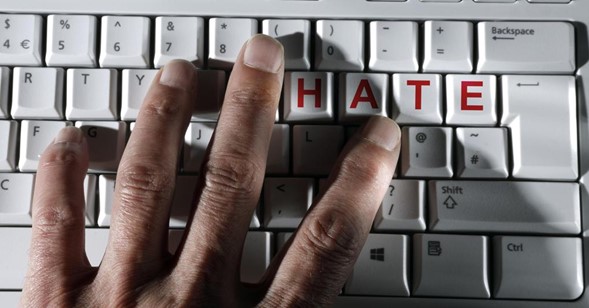Sanchez v. France, No. 45581/15, ECtHR (Fifth Section), 2 September 2021

In the case Sanchez v. France, the European Court of Human Rights ruled on the legitimacy of the criminal conviction of a French politician for incitement to hatred or violence against persons belonging to a religious group. Specifically, Mr. Sanchez – who, at the time of the events, was standing for election to Parliament for the Front National in the Nîmes constituency – had not promptly removed from the wall of his public Facebook profile comments posted by third parties inciting hatred against persons of Muslim faith. His Facebook account was used in connection with his election campaign. Especially highlighting his status as the mere owner of the social account, the applicant complained of a violation of his freedom of expression under Article 10 ECHR.
In assessing the decision of the French tribunals, the Court takes into consideration, first of all, the nature of the charged comments, which it does not hesitate to declare unlawful. Indeed, Muslims were indiscriminately associated with crime and insecurity in the city of Nîmes, being labelled as "drug dealers and prostitutes" who "reign supreme", "scum who sell drugs all day long" or as responsible for “throwing stones at white people’s cars”. The Court notes that such statements tend to arouse a strong feeling of rejection and hostility towards people of the Muslim faith.
Secondly, concerning the applicant's responsibility, the Court highlights several factors in support of the legitimacy of the conviction applied by the French authorities. First of all, it points out that Mr. Sanchez had knowingly made his Facebook account public, thereby authorising other users to post comments on his wall. Consequently, he should have supervised the content of the comments and intervened by removing the unlawful ones. In contrast, the charged comments had been kept visible for up to six weeks. Moreover, the Strasbourg judges observe that, although freedom of expression enjoys special protection in the context of political speech, it is not absolute: tolerance and respect for the equal dignity of all human beings are the foundation of any democratic and pluralist society and justify, in principle, any measure aimed at punishing or preventing hate speech, as long as it is proportionate to the aim pursued. Furthermore, the impact of racist and xenophobic statements is highly damaging in election campaigns, so politicians bear a particular responsibility in combating hate speech, especially in situations characterised by local tensions, as in the present case. In light of this, the Court makes it clear that the applicant has not been held liable for having exercised his right to freedom of expression, but given his lack of vigilance and responsiveness about the unlawful comments published on his Facebook wall, irrespective of the responsibility of the authors of those comments.
In conclusion, the Court, having also considered the amount of the penalty imposed, stated that the decision of the national judges had been based on relevant and sufficient reasons within the meaning of Article 10 ECHR, having regard to the margin of appreciation enjoyed by the Contracting States. Accordingly, the interference complained of can be seen as “necessary in a democratic society”.
(Comment by Chiara Chisari)

